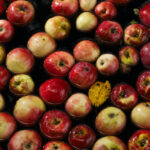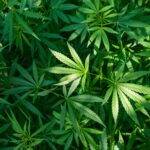Public awareness of the benefits of organic food to human health and the environment is growing in Namibia. The market availability of certified organic produce in the country, however, still leaves much to be desired, says the chairperson of the Namibia Organic Association (NOA). Aufderheide Voigts of farm Krumhuk, which is practising organic agriculture, says while many people are aware of the human and environmental benefits of organic food, more still needs be done in terms of the markets for organic produce, as availability is still very limited. Farm Krumhuk is a certified large-scale organic farm, located south of Windhoek. “Market is a big factor. Farmers need an appropriate market to make your production system work,” Voigts says. She says while awareness and demand are growing, the selling of organic produce in Namibia are mainly focused on centrally located urban centres such as Windhoek and bigger towns such as Swakopmund. Therefore, she says, supply is not yet good enough. Voigts says one of the benefits of organic produce is that it does not contain toxic harmful chemicals. She says conventional agricultural practices are can be very harmful to the environment. Organic agriculture is based on mainly enhancing soil to give vegetables and other plants the necessary nutrients. “This is done through enhancing soil fertility,” Voigts says. This is done through crop rotation, covering soil with mulching and producing compost, she says. In recent years, farm Krumhuk, which is home to about 80 people, also embraced the application of biochar to enhance soil fertility. Biochar is solid material that is produced by carbonising biomass under a limited supply or absence of oxygen. The production process resembles that of making regular charcoal, but has distinct differences to enhance desired properties, such as pore space and the absence of harmful substances. Applying biochar to soil can fix additional carbon for thousands of years, and thus presents a solution for mitigating climate change globally. Voigts says while the demand for organic produce is rising in Namibia, the supply is not good enough. Using innovative solutions to enhance productivity, such as biochar, has allowed farm Krumhuk to diversify their production. Voigts says the livestock, chickens and pigs at farm Krumhuk are fed crop residue, and their manure is used again as fertiliser, ensuring nutrient cycling and reducing losses. “We are producing different types of products, such as organic vegetables, bread, dairy products and meat. We have about 12 different dairy products,” she says. ADVOCATINGORGANIC FOOD Voigts says many people are claiming to produce food organically, but their produce does not carry the ‘Namibian Organic’ mark that ensures that the produce was grown according to the principles of organic agriculture. This, she says, is what the NOA is pleading to ensure. “Verification is very important,” she says. If the consumer is not able to verify the production system themselves and there is no verification by the NOA, they cannot be sure what the producer understands as organic. The NOA currently has more than 100 paid-up members, Voigts says. She says the NOA is a network of interested individuals and organisations striving hard to ensure its members are well trained on organic agriculture to enhance the organic sector in Namibia. In 2023, she says, they have trained around 2 507 people on organic agriculture in the Ohangwena, Omusati, Oshikoto, Khomas and Hardap regions, but more training is needed to enable farmers to tap into this agricultural system. The challenges to provide more training, Voigts says, are caused by the fact that the NOA is a voluntary body without full-time employed trainers. Many members do not have the financial resources to attend such training, she says. The NOA is therefore dependent on alternative sources of funds to subsidise the costs of such training. The NOA is a membership-based association which was founded in 2009 by farmers and consumers with the common interest of developing the local organic sector. It has been a member of the International Federation of Organic Agriculture Movements since 2011. Organic produce can be bought at the Green Market in Klein Windhoek on Saturdays and Wednesday afternoons.
Stay informed with The Namibian – your source for credible journalism. Get in-depth reporting and opinions for
only N$85 a month . Invest in journalism, invest in democracy – Subscribe Now!
This content was originally published here.


















